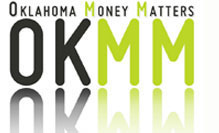Debit or Credit?
Page 8 of 13
Debit cards are actually connected to your bank account, which means when you use your card to purchase an item, money is removed from your account, much like writing a check. On the other hand, credit cards are actually loans. The transaction is charged to your account and by using the card, you agree to pay the amount charged at a later date, plus interest.
 This gets confusing because many retailers give you the option of “debit” or “credit” once you swipe your debit card. This doesn’t mean your bank card also acts as a credit card. Selecting “debit” just gives the retailer immediate access to money in your account. When you choose “credit”, it typically takes longer for the transaction to clear. Be careful; it’s rare, but a bank may charge a fee for debiting your account. And, if you select “credit”, some retailers can “block off” more than the amount you spend, preventing you from having access to money in your account that you need.
This gets confusing because many retailers give you the option of “debit” or “credit” once you swipe your debit card. This doesn’t mean your bank card also acts as a credit card. Selecting “debit” just gives the retailer immediate access to money in your account. When you choose “credit”, it typically takes longer for the transaction to clear. Be careful; it’s rare, but a bank may charge a fee for debiting your account. And, if you select “credit”, some retailers can “block off” more than the amount you spend, preventing you from having access to money in your account that you need.
Will an ATM give me the most accurate account balance?
It’s important to keep track of checks you’ve written, debit card transactions and various account fees to find your true balance. Most ATMs allow you to check your account balance, but the balance shown doesn’t reflect charges that haven’t cleared your account. For the most up-to-date information, keep a close eye on your spending and update your checkbook register daily.


